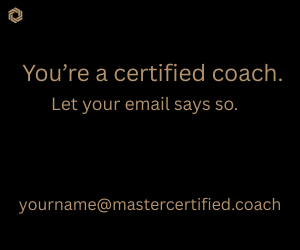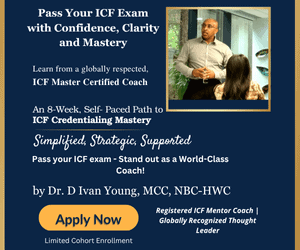During these unprecedented times, you can be forgiven for feeling anxious and overwhelmed. In such circumstances it’s very difficult to be fully present for yourself, let alone with your clients. But with a few simple mindfulness practices, it’s possible.
When we’re “stuck in our heads,” fully identifying with every negative and damaging thought, our emotions are also negatively affected. We get trapped in a spiral or loop of suffering. To break this pattern, we need to create some space between ourselves and our thoughts. This space offers us the chance to become “present” – fully aware of our mental and physical selves.
Neuroscience has shown us that our well–being is improved by the integration of mind and body and this process begins with presence. Your body is continually communicating with your brain, giving you signals of how it’s doing. If you’re having stressful thoughts, you may also notice a tightening in your chest or a sense of irritability. When we become more used to noticing these physical cues, we can act on them and give our bodies what they need.
Mindfulness offers practical techniques to help us be more in touch with these signals, to be more present for ourselves. To remind ourselves to return to the “here and now“ when we begin to stress about the future or get depressed about the past.
We all have different perceptions and tolerances of stress, but by using simple, powerful tools you can start build up resilience against overwhelm. Having daily practices that you become familiar with means that when you experience a challenge you can automatically reach for this practice and quickly return to a state of calm and balance.
Practice Now
A grounded body scan (3 minutes)
When you’re lost in thought, this practice will help you break that overthinking loop. Your body exists purely in the present moment, unlike your mind that is capable of doing a lot of harmful time-traveling to the past (depression) and the future (anxiety). So, you can use your body as an “anchor” to bring yourself back to the “here and now” rather than being lost in your head.
By connecting to our physical sensations, we become “present” again, aware of ourselves and able to pause and reset. This allows us precious time to return to a more balanced state from where we can deal with whatever is happening.
To try it, follow these steps:
Begin by standing up (without shoes if possible).
Notice your feet on the ground.
How familiar are you with these sensations?
How often do you notice your feet when they don’t hurt, for example?
Feel the support of the ground, slowly rising up through your ankles.
Make your way slowly up through your body to the top of your head.
Paying close attention to the sensations in your body as you go.
Where might you use this technique in your day
- Before your coaching calls
- When you’re waiting for the kettle to boil
- After each meal
- When you get up and before you go to bed
When you integrate this structured approach into your day, you’re teaching your mind how to break overwhelming thoughts and emotions. It will become more familiar to you the more you practice, and you’ll be able to reach for it in moments of stress to soften your experience.
Gaining a new perspective and refreshing our thoughts is such an effective antidote to overwhelm. But first we need to be present with ourselves.
Remember, overwhelm happens in our mind when we over–identify with thoughts and become stressed, anxious etc. Body awareness is one of the pillars of mindfulness and connecting to it is the fastest route out of overwhelm and back to the present moment. Come out of your head and into your body, feel present with yourself and therefore your clients. And it’s from this place that we want to have our coaching conversations.
This is one of hundreds of mindfulness tools that you can explore to improve your well–being. For more information visit Kate Greenslade at onlinemindfulnesscoach.com
Disclaimer
The views and opinions expressed in guest posts featured on this blog are those of the author and do not necessarily reflect the opinions and views of the International Coach Federation (ICF). The publication of a guest post on the ICF Blog does not equate to an ICF endorsement or guarantee of the products or services provided by the author.
Additionally, for the purpose of full disclosure and as a disclaimer of liability, this content was possibly generated using the assistance of an AI program. Its contents, either in whole or in part, have been reviewed and revised by a human. Nevertheless, the reader/user is responsible for verifying the information presented and should not rely upon this article or post as providing any specific professional advice or counsel. Its contents are provided “as is,” and ICF makes no representations or warranties as to its accuracy or completeness and to the fullest extent permitted by applicable law specifically disclaims any and all liability for any damages or injuries resulting from use of or reliance thereupon.
Authors
Post Type
Blog
Audience Type
Coach Educators, Experienced Coaches, External Coaches, ICF Chapter Leaders, Internal Coaches, New Coaches, Professional Coaches, Team and Group Coaches
Topic
Discover - Your Coaching Career, Personal Growth
Related Posts
The Coaching Trap: When Empathy Becomes Exhaustion
Prepare yourself for the fact that this will not be about you…
Your Guide to Preparing for the ACC Exam
Much like a smartphone upgrade that introduces improvements for a smoother user…
How Coaching Is Driving Inclusion Around the Globe: Lessons from Local ICF Chapters
When a group of mothers in Kazakhstan, many of whom had never…








